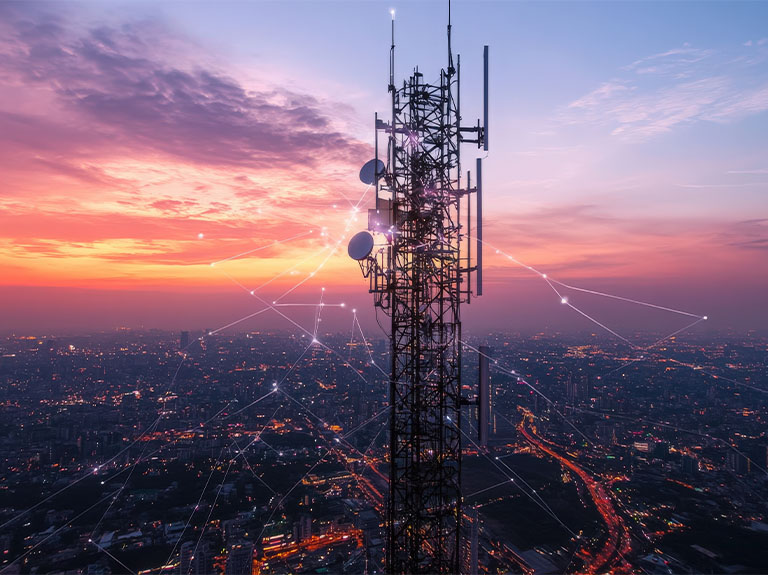One of the most amazing things about Generative AI is how quickly it’s become not just a fixture in pop culture but central to how businesses can drive real value that simply wasn’t possible before.
For example, the first commercial television launched in the U.S. in 1939. When the Census Bureau conducted its 1950 survey, it asked about television ownership for the first time. The results? Only 12 percent of U.S. households owned a set more than a decade after launch.
We’re now getting close to two years since GenAI went mainstream with the launch of ChatGPT.
And it’s already changing everything.
In June of 2023, we launched Ask AT&T. This is a GenAI platform that our employees can use to summarize phone calls and documents, write code, and dig into databases to find insights to better serve our customers.
And the numbers and results have been huge.
We generate about a billion tokens per day now. A token in GenAI (whether powered by a Large Language Model or its Small Language Model counterpart) is essentially equivalent to a generated word. So GenAI is cranking out the equivalent of about a billion words per day at AT&T. These are everything from automated summaries of inbound customer calls, which saves between 30 seconds to several minutes per call, to suggestions on relevant products and services for customers, to lines of computer code, and more.
That’s a level of information and automation that simply wasn’t possible before. It makes our employees much more efficient at their jobs.
I also mentioned querying databases. This is another area where Ask AT&T excels.
For example, our AskData tool currently ranks number 1 in the world on the GenAI BIRD leaderboard. This constantly updating scoreboard tracks which GenAI platforms around the world are the best at translating plain text queries into SQL programming language. SQL is the industry standard for querying and managing large databases. We’ve got a lot of those!

What this ranking means is that Ask AT&T is exceptionally good at taking standard, plain English questions and turning them into computer code to find insights in data. For example, approved AT&T employees can ask our data questions like, "How many new customers did we add for a particular service in a specific region last week?" Or, "What are the busiest stores in a particular region?"
You don't need to be a data scientist or programmer to write code or algorithms and get actionable intelligence back anymore from complex data sets. Anyone can use these tools!
We've put a lot of work into refining Ask AT&T. Off-the-shelf GenAI platforms can be incredibly useful. But we've found that the accuracy and value increase dramatically when you finetune models on our data or use approaches such as Retrieval-Augmented Generation (RAG). Think of it as adjusting the antenna on one of those old-school TVs to get the best picture, only with a lot more science behind it.
As we get ready to head into the third year of GenAI, it's clear that the information at one's fingertips and value is real. It's exciting to think how it will become even more useful as we strive to move from "Ask Data" to "Explain Data" (automatically building models to explain what is going on e.g. with sales, churn, fraud), and then "Act on Data".
Consumer devices – not just smartphones and tablets but really any Internet-connected device – will benefit from GenAI in the coming years.
The same is true on the business side. The benefit is huge and only going to grow.
Read more AT&T Technology & Innovation news



